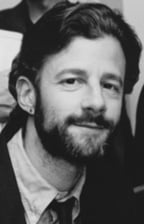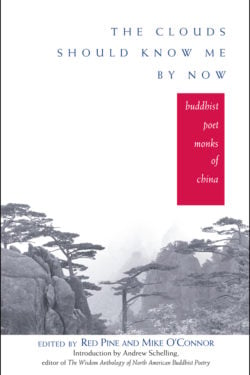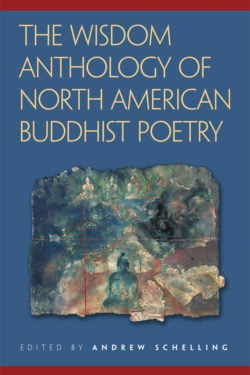Andrew Schelling

Andrew Schelling is a poet, essayist, and translator of the poetry of India. He has taught at Naropa University for twenty years and from 1993–96 served as chair of the Jack Kerouac School of Disembodied Poetics founded by Alan Ginsburg and Anne Waldman. His publications include Tea Shack Interior and The Wisdom Anthology of North American Buddhist Poetry. He lives in Boulder, Colorado.
Books, Courses & Podcasts
The Clouds Should Know Me by Now
This unique collection presents the verse, much of it translated for the first time, of fourteen eminent Chinese Buddhist poet monks. Featuring the original Chinese as well as english translations and historical introductions by Burton Watson, J.P. Seaton, Paul Hansen, James Sanford, and the editors, this book provides an appreciation and understanding of this elegant and traditional expression of spirituality.
“So take a walk with…these cranky, melancholy, lonely, mischievous poet-ancestors. Their songs are stout as a pilgrim’s stave or a pair of good shoes, and were meant to be taken on the great journey.”—Andrew Schelling, from his Introduction
The Wisdom Anthology of North American Buddhist Poetry
Playful, thoughtful, and important, the 28 poets found in The Wisdom Anthology of North American Buddhist Poetry offer innovations on traditional and time-honored Buddhist poetic forms.
This unique collection brings us African Americans reading the Black diaspora through the eyes of exiled Tibetan monks; Americans of Vietnamese and Tibetan heritage wrestling with the cultural norms of their parents or ancestors; Zen and Dada inspired performance pieces; and groundbreaking writings from the pioneers of the Beat movement, so many of whom remain not just relevant but vital to this day.
With its eclectic mix of acknowledged elders and newly emergent voices, this landmark anthology vividly displays how Buddhism is influencing the character of contemporary poetry.
Includes biographical notes and historical introduction by the editor, enhancing its value for workshop and classroom use.
Includes works by:
- Diane di Prima
- Lawrence Ferlinghetti
- Norman Fischer
- Sam Hamill
- Jane Hirshfield
- Mike O’Connor
- Gary Snyder
- Eliot Weinberger
- Philip Whalen
- Michael McClure
- Leslie Scalapino
- and more…


